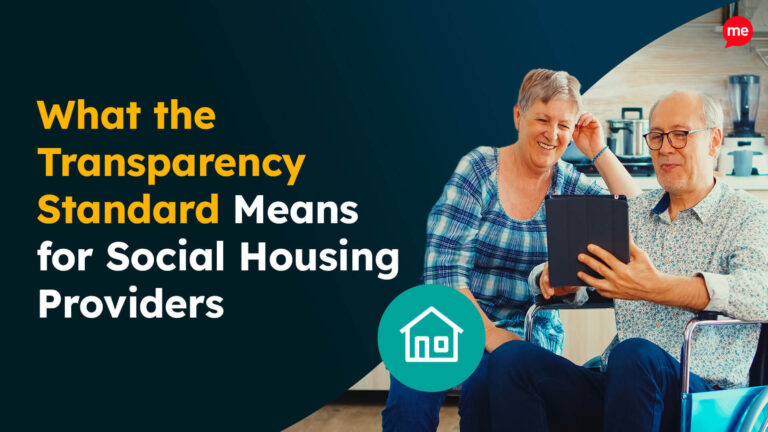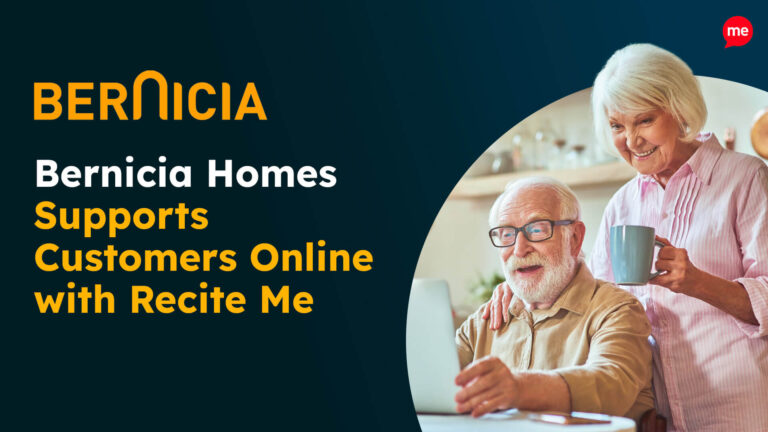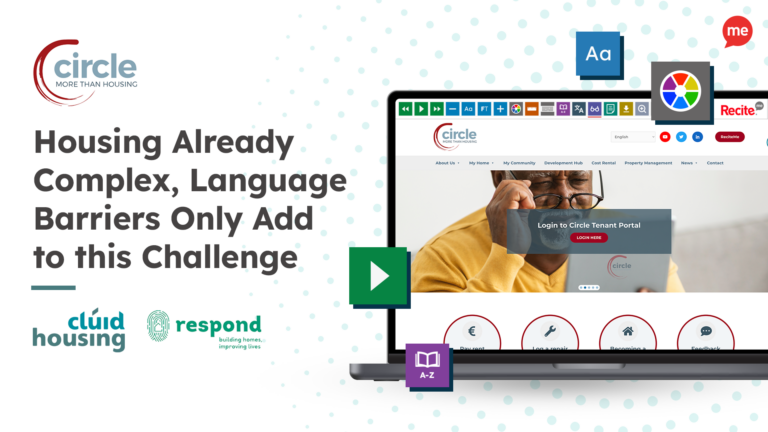According to the National Housing Federation, the number of people in need of social housing hit 3.8 million in 2020. That equates to 1.6m households.
Having a roof over your head and a safe living environment is one of the most basic human necessities. Yet, as we approach the halfway point of 2021, the financial impacts of the COVID-19 pandemic are still taking their toll and the need for affordable housing has never been greater.
There are many fantastic housing associations and council initiatives that support citizens and provide solutions to people in vulnerable situations. But often, information about housing services is only available online.
Most of us take for granted that we can access information online whenever we want to. But for many in our society, access barriers prevent this.
That’s why information on housing websites must be accessible to all.
Who Needs Help Accessing Information About Housing?
There is a proven link between inaccessible websites and financial vulnerability.
Inequality in access to information leads to an inequality of access to services, causing further financial impacts and an increased feeling of helplessness.
By very nature, many who struggle the most to access information about housing online are those who already face barriers in other areas like seeking education, employment, and being able to adequately self-manage their finances without access to in-person service. This includes anyone with:
- Decreased vision
- Literacy problems
- Autism
- Learning difficulties
- Attention disorders
- Physical disabilities
- Problems speaking and reading in English
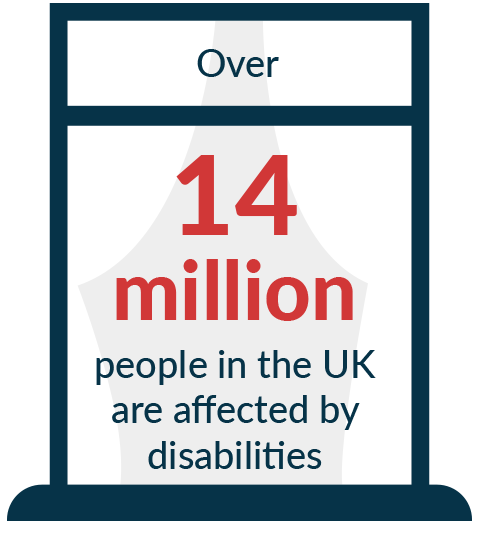 This list accounts for a significant percentage of our population, meaning there are many people who lack the tools they need to adequately understand or communicate online, and are missing out on the help and services that they so desperately need as a result:
This list accounts for a significant percentage of our population, meaning there are many people who lack the tools they need to adequately understand or communicate online, and are missing out on the help and services that they so desperately need as a result:
- Over 14 million people in the UK are affected by disabilities.
- The UK is home to nearly 12 million residents aged 65 years and over, all of whom are less technologically adept and are more likely to develop age-related physical disabilities and vision deficits.
- The tenant base is becoming increasingly diverse with more applicants every year who speak English as a second language.
How Can Housing Associations Help?
The first step is to ensure that your website is as inclusive as possible by adopting a user-friendly design that takes account of accessibility features.
Most public sector websites are now expected to meet minimum criteria for accessibility as per the Web Content Accessibility Guidelines (WCAG) 2.1 accessibility Level AA. The deadline for website accessibility compliance was September 2020, so for housing associations in the public sector this isn’t just something that should be done, it’s something that must be done.
Additional guidelines from the Financial Conduct Authority (FCA) recommend that providers should take the following steps to ensure that vulnerable applicants are not disadvantaged in accessing services because of their information needs:
- Provide simplified versions of communications
- Provide large print accessible websites
- Include audio options for online information
- Respond to the needs of vulnerable consumers at all stages of the customer journey

Website Accessibility Technology
Software like the Recite Me assistive toolbar can help housing providers to improve the usability of their websites, and our team is more than happy to advise on accessible web builds and WCAG compliance too.
The idea behind our toolbar is that it can be fully customized to account for the preferences of each individual user, making your website not just accessible, but truly inclusive. Users can apply a range of tools to change the way a website looks so they can read and understand the information. This includes being able to:
- Personalise font size, type, and colour options to make each web page easier to read.
- Download content as an audio file as an alternative to reading.
- Access text to speech functions in 35 different languages.
- Have text read aloud at varying speeds.
- Utilise a screen mask and ruler for better focus.
- Convert text into over 100 different on-screen languages.
- Make use of the toolbar’s built-in dictionary and thesaurus.
- Switch to “text-only” mode to strip away graphics and page clutter.
For people who find traversing the online world complicated, time-consuming, and ultimately frustrating, this is a huge help. It’s all about providing options so people can find information in their preferred way. Whether that be large print, audio options, alternative colour templates, or having access to content in their first language, it’s about choice.
How Recite Me is Making a Difference
We believe that housing initiatives play a critical role in supporting people by building communities and helping tenants to live healthier and happier lives. We’re proud to work with a number of organisations in the housing sector already, including:
- Believe housing
- Beyond housing
- Luton Community Housing
- South Tyneside Homes
- Abertay Housing association

Beyond Housing
Beyond Housing provides 15,000 homes and a wide range of services to over 30,000 customers living in the Tees Valley and North Yorkshire.
They upgraded their home page with new tools as part of their ‘Believing in Accessibility for all’ strategy. One of their customers, Anda, was happy to weigh in on the difference the Recite Me toolbar has made;
“I’m a member of an Eastern European community support group and regularly use the Recite Me toolbar to translate online content. I can access information with various different
adjustments, including translation in many languages, some of them even in audio version. I can also change colours, text, and use other on-screen tools.”
Believe Housing
Believe Housing is one of the largest housing associations in the northeast of England, covering 862 square miles. Adding our accessibility features to their website has removed barriers and allowed the organisation’s tenant base of over 18,000 households to find out key information about their tenancy and the services available to them.
“Recite Me was recommended to me by a web developer back in 2015 and we’ve never looked back! There are so many options from one source that aid the overall customer experience. It’s easy to use and gives a whole range of accessibility and language options from the click of a button.”
Jill Ancrum, Communications Manager, Believe Housing
Our Data
Based on our 27 clients in the housing sector, our data over a 12 month period shows that:
- Over 30,000 unique users opened the Recite Me toolbar
- More than 134,000 web pages were viewed
- The average number of pages users viewed per session was 4.4. This is way higher than the average of 2.8 pages.
- Over 183,000 pieces of content read aloud
- Over 31,500 pieces of on-page content were translated into other languages
- More than 12,000 individual styling changes were made
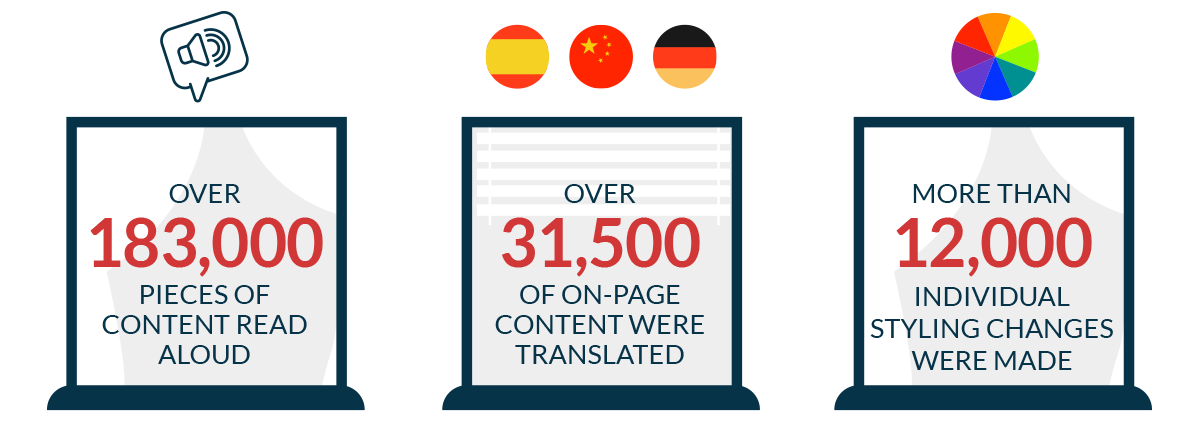
Home Truths for Housing Organisations
Access to affordable housing has undeniable positive impacts on families, and also encourages growth in the local economy. When tenants are able to live within their means, they can spend money on healthcare, education, transport, and other products and services in the local area.
Housing assistance has also been proven to boost the health and academic success of children from low- income households, maximising the chances of financial success later in life, while reducing the long-term costs to society.
So…Why should these benefits not be open to everyone?
By choosing not to make websites accessible, housing organisations are cutting off access to a significant proportion of the very people they aim to help the most.
If you’d like more information on how your organization can make a positive change towards inclusion by utilising assistive technology, please contact our team or book a demonstration of our toolbar. Together, we can make a difference and provide everyone with equal opportunities online.
Additionally, try our site accessibility tool, which allows you to scan your website for free against a range of WCAG accessibility guidelines.
